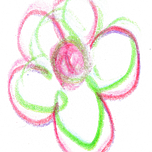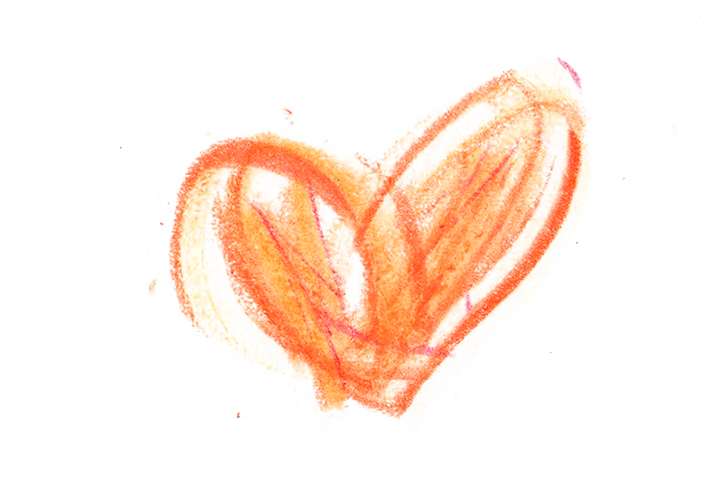I’m having one of those weeks again where I’ve been having trouble being nice to myself. Nothing too terrible has happened. I lost/misplaced a few things, couldn’t make a personal deadline and have been dealing with my chronic pain rearing its head again, but as I said nothing majorly terrible, nothing I can’t handle. But these ‘things’ have still managed to throw me into momentary spirals of deep shame and utter self-loathing so quickly. Lately, I’ve really been trying to be more aware of the language and thoughts in which I think and talk to myself, because I know how much power they hold over me. Even after all the tools and practices I feel like I’ve garnered over the years, more often than I would like to admit to, the words I use to talk to myself are nowhere near as loving or as tender as I’d like to be with myself.
It’s scary to be reminded that no matter how much I theoretically understand that I am not ‘how well I handled today’s to-do list’, how hard it is to actually detach my self-worth from narratives around productivity when we live under capitalism. We live under a system that benefits from us not loving ourselves as we are. The global economy is dependent on our chronic ‘not-enoughness’. We are socialised to believe we are always competing against each other. The cost of living is so high that we literally can’t afford to stop. Concepts and terminology around ‘self-love’ have become so buzzwordy and so hyper commoditized over the years that attempting to discuss (or actually practice) ‘self-love’, as in ‘the act or practice of loving oneself’ feels almost icky, embarrassing, self-indulgent or somehow narcissistic when at its core being able to truly love oneself against all odds seems like the key to not just surviving but thriving through this thing we call life.
Last week I listened to a conversation on Krista Tippett’s inimitable podcast ‘On Being’, between the writer Elizabeth Gilbert, (known to most of the world through her mega-successful book/film ‘Eat, Pray, Love’ who’s voice and presence I really cherish in the world!) and the author Pico Iyer on ‘The Future of Hope’ where she spoke with him about her daily practice of ‘writing to Love asking Love to write back’. A practice she says was born out of a time of emergency, 20 years ago which she describes as “a time of great despair and loneliness.” “I don’t know where the inspiration came from, but I thought, what would happen if I could generate somebody who would say to me the things that I’ve always needed to have somebody say to me, what would those things be? And I grabbed a notebook, and I wrote a letter to myself from that”, she explains.
She goes on to list some examples of the things she felt she needed to hear and thus would write to herself (from Love) here:
“I love you.
I am with you.
I will never leave you.
You are not alone.
I’ve got you.
You are my precious.
You are my beloved.
You are my child.
There’s nothing you can do or not do that could cost you this great love that I have for you.
I don’t need anything from you in return.
I don’t need you to provide anything for me; I don’t need you to prove anything to me.
You don’t have to feel better, for me to love you.
You don’t have to stop crying, for me to love you.
You don’t have to be successful at anything, for me to love you.
Nothing is owed, nothing is earned, nothing is asked.”
Even though she is obviously the one technically writing the words, she explains that “writing them down was powerful enough to settle my nervous system. I don’t think the fear part of my brain was sophisticated enough to notice that I was the one writing it. All it heard was, You are safe, you are loved, you are mine. You can’t fail. You can’t disappoint me”.
Listening to Elizabeth speak, I was reminded that I had also been doing aspects of this practice intermittently in my life albeit slightly differently. Ever since I can remember, whenever I’ve done or said something I felt extremely embarrassed about or so very ashamed of I would whisper or mutter loving words to myself under my breathe like, “I love you”, “it’s okay Naomi” or “forgive yourself, Naomi. These outbursts were always so mysterious and mystical to me because they truly didn’t feel like they were controlled by me but they somehow had the power to calm me down even if only ever so slightly. Later on, I used to tell myself that they were messages from my Dad (who passed away when I was 9), that it was his voice speaking, his way of communicating with me, of picking me up off the floor when he was no longer physically around to. Despite not really understanding how or why it happened, it gave me a sense of comfort and made me feel less alone. It felt like a divine act of love when I needed it the most. Whether I imagined these messages to be from my father or in Elizabeth’s practice to ‘Divine Love’, or both because to me they feel interchangeable, it feels like a powerful practice of self-forgiveness, mercy and true tenderness towards oneself. All virtues that often feel so hard to come by in modern life, that feel more important to practice than ever.
This Valentine’s day instead of falling for the many suffocating, reductive, dizzying myths about ‘Love’ and getting lured into the commodification of it, let us commit to doing the work of re-imagining loving ourselves so deeply as something so beautiful and so sacred instead of as something embarrassing and self-indulgent, because to me right now, it feels like the most radical thing we can do.
I’ll go first:
Naomi, I love you.
There’s nothing you could do to sever the love I have for you.
My love for you is both eternal and infinite, I will continue to love you in this lifetime as well as all the others.
You don’t need to be ‘successful’, or to be ‘heralded’ by others as some kind of ‘anything’ to be worthy of my love.
You could never disappoint me.
I will always be here with you, no matter what because my love for you is infallible.
I love you as you are today, in your exact form.
You are already enough just as you are.
Love,
Love. XOXO

















Share this post